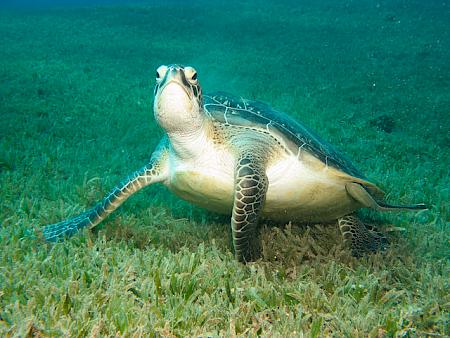The value and limits of an egg buy-back scheme in green turtle conservation in Malaysia
A new study from Terengganu, Malaysia, has shed light on the effectiveness and challenges of using an egg buy-back scheme under a turtle egg concession system to protect endangered green turtles (Chelonia mydas).
First introduced in 1961, the egg buy-back scheme involves the government purchasing turtle eggs from licensed collectors and relocating them to protected hatcheries.
While previous studies showed the scheme increased the number of eggs protected, this is the first study to assess the hatching and emergence success of the purchased eggs, drawing comparisons between eggs handled by a conservation NGO and licensed egg collectors.

The study, conducted by Lang Tengah Turtle Watch that is now known as Marine Conservation and Research Organisation Malaysia (PULIHARA), found that eggs relocated by PULIHARA had slightly higher hatching and emergence success rates than those handled by licensed collectors.
Nevertheless, both groups achieved relatively high success rates, with nests purchased under the scheme yielding over 74% hatching and emergence rates.
The study also found that proper egg handling practices and shorter relocation distances contributed to higher hatching success, underscoring the importance of minimising movement-induced embryo mortality.
From 2016 to 2021, PULIHARA purchased over 71,000 eggs from 700 nests across ten nesting beaches in Terengganu, spending over MYR 275,000 to protect 2.1% of the total eggs laid in the state over that period.
Despite its conservation benefits, the study cautioned that the scheme is financially unsustainable in its current form.
High egg prices strain conservation budgets, while low prices discourage collectors from selling eggs for conservation.
Seh Ling Long, TRAFFIC’s Senior Programme Officer, who conducted the study while at PULIHARA said:
Although the findings reflected the situation before the total ban on turtle eggs in 2022, they remain relevant as the licensing system and egg buy-back scheme remain in place after the ban."
The researchers called for sustained funding, strong enforcement to deter illegal collection and sale of turtle eggs, and greater collaboration among government bodies, NGOs, and local communities.

They also recommended revisiting the licensing system to prioritise conservation-oriented license holders.
As long as the licensing system and egg buy-back scheme exist, one potential solution is to award licenses to individuals or groups with a clear conservation interest,” Seh Ling noted.
Seh Ling added,
In principle, the licensing system and egg buy-back scheme are no longer aligned with the amended law. In practice, transitioning away will take time.”
The findings provide important insights for refining conservation strategies and balancing turtle protection with the socio-economic realities of local communities involved in egg collection.



